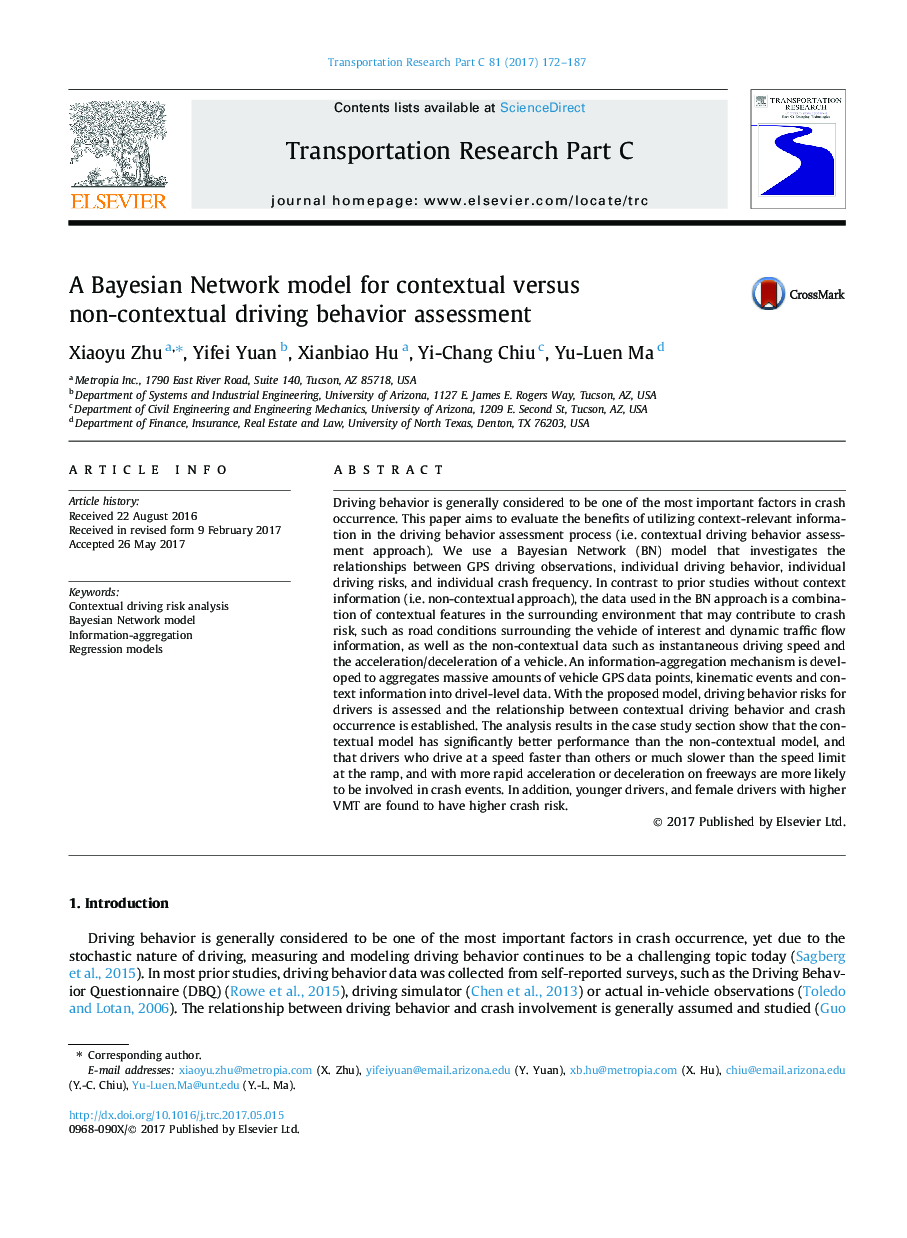| Article ID | Journal | Published Year | Pages | File Type |
|---|---|---|---|---|
| 4968411 | Transportation Research Part C: Emerging Technologies | 2017 | 16 Pages |
Abstract
Driving behavior is generally considered to be one of the most important factors in crash occurrence. This paper aims to evaluate the benefits of utilizing context-relevant information in the driving behavior assessment process (i.e. contextual driving behavior assessment approach). We use a Bayesian Network (BN) model that investigates the relationships between GPS driving observations, individual driving behavior, individual driving risks, and individual crash frequency. In contrast to prior studies without context information (i.e. non-contextual approach), the data used in the BN approach is a combination of contextual features in the surrounding environment that may contribute to crash risk, such as road conditions surrounding the vehicle of interest and dynamic traffic flow information, as well as the non-contextual data such as instantaneous driving speed and the acceleration/deceleration of a vehicle. An information-aggregation mechanism is developed to aggregates massive amounts of vehicle GPS data points, kinematic events and context information into drivel-level data. With the proposed model, driving behavior risks for drivers is assessed and the relationship between contextual driving behavior and crash occurrence is established. The analysis results in the case study section show that the contextual model has significantly better performance than the non-contextual model, and that drivers who drive at a speed faster than others or much slower than the speed limit at the ramp, and with more rapid acceleration or deceleration on freeways are more likely to be involved in crash events. In addition, younger drivers, and female drivers with higher VMT are found to have higher crash risk.
Related Topics
Physical Sciences and Engineering
Computer Science
Computer Science Applications
Authors
Xiaoyu Zhu, Yifei Yuan, Xianbiao Hu, Yi-Chang Chiu, Yu-Luen Ma,
